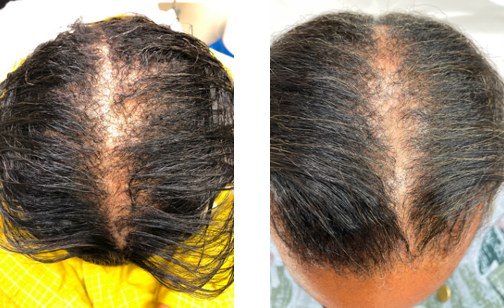Your message has been sent.
Poster Title: Utilization of Platelet-Rich Plasma in the Treatment of Hair Loss
Student: John Petela, Class of 2024
Faculty Mentor and Department: Amy McMichael, MD, Dermatology
Funding Source: Department of Dermatology, Wake Forest School of Medicine
ABSTRACT
Background: PRP is an autologous serum consisting of high concentrations of platelets and growth factors obtained through gradient density centrifugation. It has been used in many medical fields, beginning with hematology and orthopedic surgery. PRP use in dermatology has grown rapidly in recent years for indications such as tissue regeneration, skin rejuvenation, wound healing, scar revision, and alopecia. PRP is thought to exert its effects in the treatment of alopecia specifically by delivering growth factors directly to the hair follicle, thus upregulating genes associated with angiogenesis, cell survival, and proliferation. Several studies have reported positive outcomes with the use of platelet rich plasma (PRP) in treatment of androgenetic alopecia (AGA) and other non-scarring alopecia. However, utilization of PRP in scarring alopecia, specifically in central centrifugal cicatricial alopecia (CCCA) has not yet been studied extensively. We conducted a patient-centered survey targeting patients with AGA and CCCA and their resultant hair growth following the treatment.
Hypothesis: It is hypothesized that patients with AGA and CCCA will benefit from treatment with PRP despite the difference in etiology of hair loss.
Methods: An anonymous survey targeting overall assessment of hair growth from both the provider and patient as well as patient satisfaction with the PRP treatment was administered in an outpatient dermatology clinic. The stage of each patient’s alopecia was scored by a clinician based on the standard scale for that patient’s condition. Survey results were analyzed and compared according to the cause of each patient’s alopecia. Each patient was subjected to a regimen of three separate PRP treatments, each six weeks apart, with optional maintenance treatments every six months. Data was collected at various points throughout the PRP treatment cycle.
Results:A total of 49 patients were enrolled in this study. Of these, 34 patients with AGA and 10 women with CCCA were followed. AGA patients had an average disease stage of 3.8 on twelve and nine-point scales for men and women with AGA respectively. In comparison, CCCA patients had a mean disease stage of 2.5 on a 4-point scale. The mean patient reported improvement score on a 1-10 scale was 5.6 for AGA patients and 5.7 for CCCA patients. The mean clinician reported score on the same 1-10 scale was 6.3 for AGA patients and 5.4 for CCCA patients. The patient satisfaction assessment based on a separate 1-10 scale showed a mean score of 7.4 for AGA patients and 8.4 for CCCA patients.
Conclusions:Although treatment with PRP is currently recommended for non-scarring forms of alopecia, patient satisfaction and clinical evaluation suggests it is effective in the treatment of CCCA as well. The clinician scores and average stage differences between indications showed that our cohort of CCCA patients generally had more advanced disease than AGA patients. Despite more progressed disease, the study findings show that patients with CCCA rated their own hair regrowth higher than patients with AGA. Additionally, average patient satisfaction in CCCA was higher than in AGA per the mean patient recommendation score. Although CCCA as a scarring form of alopecia would not be expected to improve from treatment with PRP, our study indicates it may be a worthwhile option for patients as a possible rescue treatment for the follicles that are not completely destroyed. PRP treatment in conjunction with other alopecia medications such as minoxidil and the avoidance of hair-damaging styles with excessive traction or heat can greatly improve the outcome of patients with CCCA.
Source of mentor’s funding or other support that funded this research: The project described was part of a multi-center study directed by Murad Alam, MD, from Northwestern University.
Powered by Acadiate
© 2011-2024, Acadiate Inc. or its affiliates · Privacy
 CLOSE SIDEBAR
CLOSE SIDEBAR
